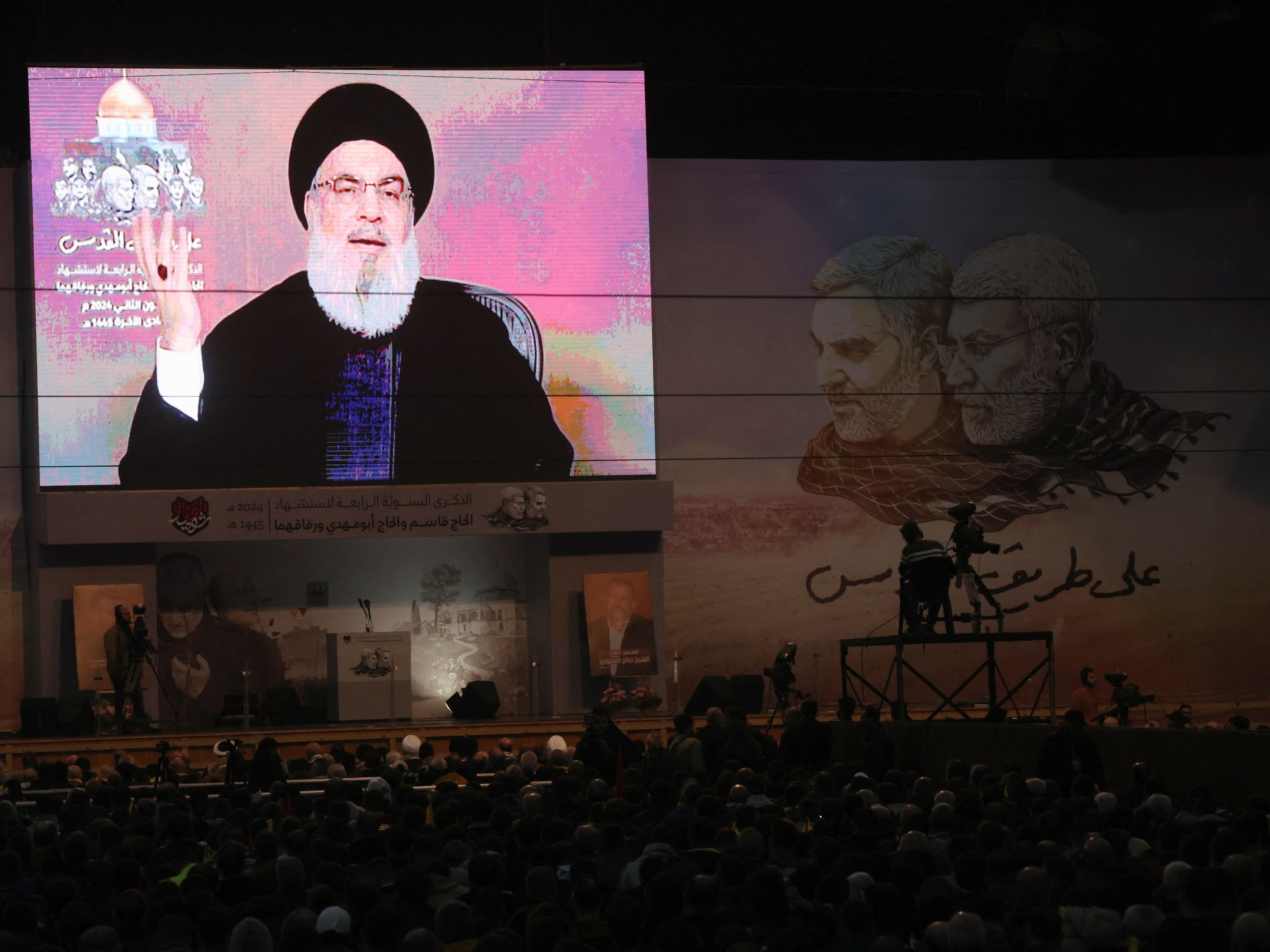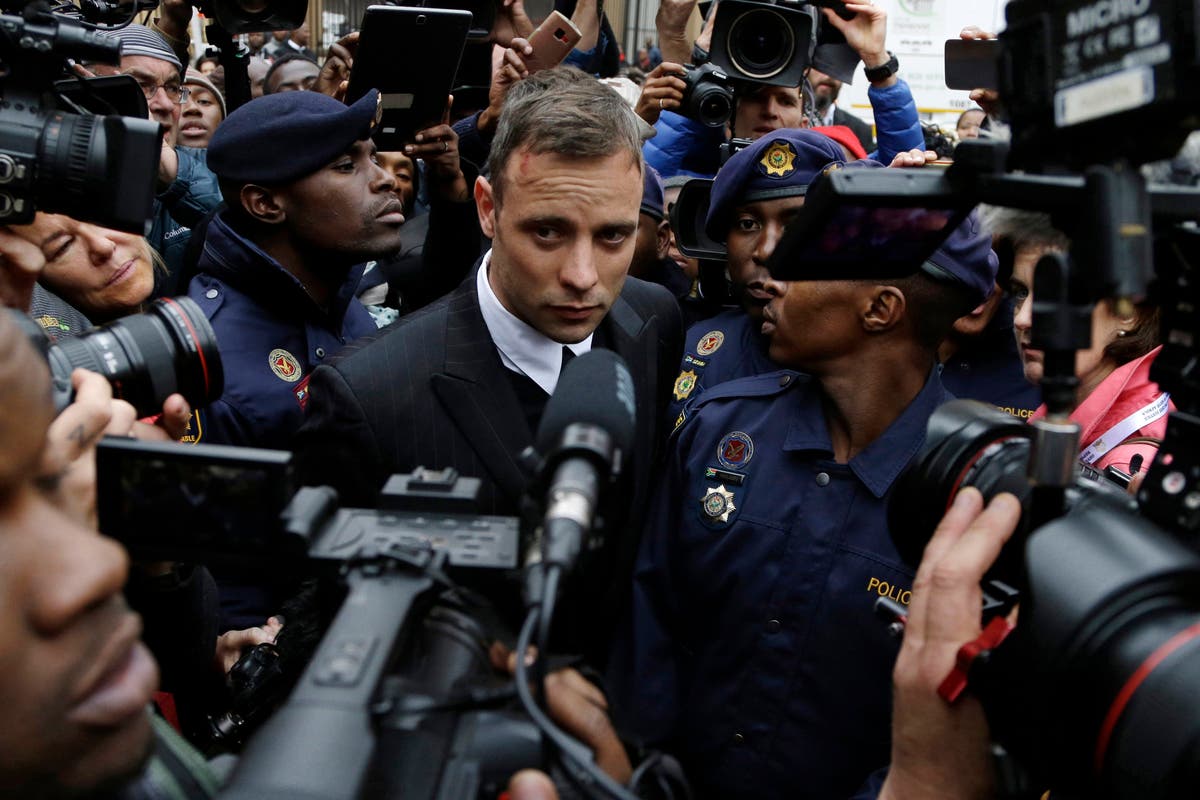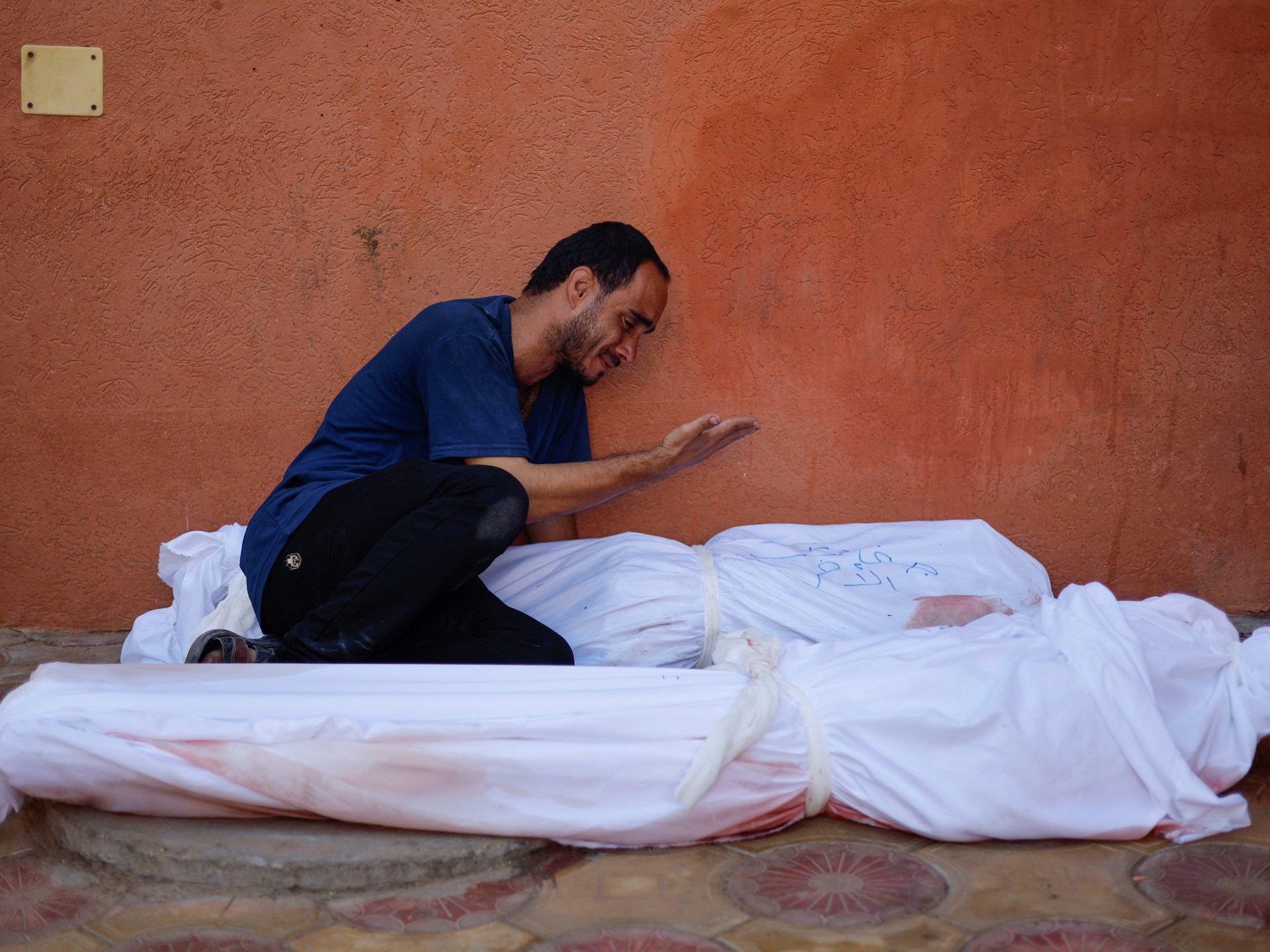
Sayyed Hassan Nasrallah expresses his condolences to Hamas following the assassination of its deputy leader Saleh al-Arouri.
This is what the leader of Lebanon’s powerful armed group Hezbollah says Assassination of the deputy head of the allied Palestinian faction Hamas in Beirut there is “a serious, dangerous crime that we cannot remain silent about.”
In a televised address on Wednesday, Hassan Nasrallah blamed Israel for the attack and expressed condolences to Hamas for what he called “blatant Israeli aggression” in which people were killed Saleh al-Arouri.
Tuesday’s attack hit the southern Beirut suburb of Dahiyeh, a Hezbollah stronghold.
Israeli army spokesman Daniel Hagari did not comment directly on al-Arouri’s killing, but said the military was “fully prepared for any possible scenario.”
But on Wednesday, the head of Israel’s Mossad intelligence agency vowed that the agency would hunt down any Hamas member involved in the Oct. 7 attack on Israel, no matter where they were.
David Barnea’s comments seemed to be the strongest clue, but they were behind Tuesday’s explosion.
It was the first attack to hit Beirut in almost three months Almost daily fire between the Israeli military and Hezbollah across the Israel-Lebanon border.
Hezbollah fired rockets across the border starting October 8 in support of Hamas, which had carried out a deadly attack on southern Israel the day before, to which Israel responded with a devastating bombing raid on the Gaza Strip.
Hezbollah is part of the “Axis of Resistance,” a loose alliance of armed groups with ties to Iran. These include Hamas in Palestine and the Houthi rebels in Yemen.
Nasrallah claimed Hezbollah’s “swift” action on October 8 and cross-border shelling since then had prevented a broader Israeli bombardment in Lebanon.
He said there would be “no limits” and “no rules” to Hezbollah’s fighting if Israel launched a war against Lebanon.
Speaking to Al Jazeera, Andrea Dessi, assistant professor of international relations at the American University of Rome, said it did not look like there would be “a direct escalation in the coming days.”
“However, the threat exists,” Dessi told Al Jazeera.
The reaction will have to come at some point, he said, especially because the “credibility of Hezbollah and Nasrallah is at stake,” as he had stated in the previous speech that any such killing would provoke a reaction.
However, Hezbollah “does not want to take on the responsibility of starting a major war,” he added.
Reporting from Beirut, Al Jazeera’s Zeina Khodr said Nasrallah’s address was a “delicate balancing act.”
“He was talking about the front in southern Lebanon, where Hezbollah is engaged in a low-intensity conflict with the Israeli army along the border. He said that [fighting] To be continued.
“He said that if Israel decides to launch a full-scale offensive, Hezbollah would retaliate with all military capabilities.”
“But Nasrallah also spoke about strategic, national considerations that each of the so-called resistance groups in this ‘Axis of Resistance’ across the region must take into account. And in Lebanon, Hassan Nasrallah knows that Israel can destroy this country,” she said.
“In many ways his hands are tied. At the same time, however, he reiterated that Hezbollah is not afraid of war.”
Nasrallah will give another televised address on Friday.
Hamas said al-Arouri would be buried in the Shatila Palestinian refugee camp in Beirut on Thursday.






Recent Comments